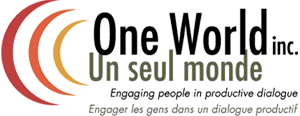Meeting the Challenge of Comparability
 Public engagement initiatives vary in size, scope, time frame and purpose, from projects with tens of thousands of participants around the world to panels involving 10 citizens from across town. The objectives may be to effect a change, to do things better, to foster involvement, to increase knowledge and/or to build common ground.
Public engagement initiatives vary in size, scope, time frame and purpose, from projects with tens of thousands of participants around the world to panels involving 10 citizens from across town. The objectives may be to effect a change, to do things better, to foster involvement, to increase knowledge and/or to build common ground.
Whatever the intent, the ultimate goal is to make a difference. The challenge lies in measuring this difference. What have we accomplished? What difference has the engagement initiative made? Is one kind of engagement better than another to achieve certain goals? In the public engagement field, sometimes a lack of comparable data makes it difficult to answer these questions. For example, a group might be doing a citizens’ panel in Edmonton to advise city council on policy. It has chosen one set of criteria for evaluation. But another group doing a citizens’ panel in Guelph might have a different set and it becomes difficult to compare the success and achievements of the two panels (even allowing for the importance context can play).
